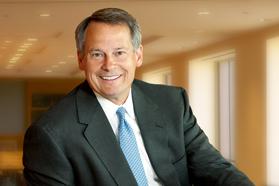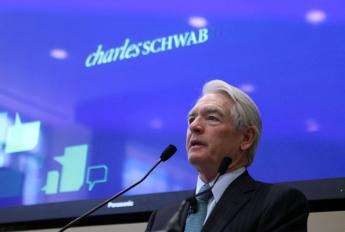Related Topics
Investing, Philadelphia Style
Land ownership once was the only practical form of savings, until banking matured in the mid-19th century. Philadelphia took an early lead in what is now called investment and still defines a certain style of it.
Personal Finance
The rules of financial health are simple, but remarkably hard to follow. Be frugal in order to save, use your savings to buy the whole market not parts of it, if this system ain't broke, don't fix it. And don't underestimate your longevity.
Dislocations: Financial and Fundamental
The crash of 2007 was more than a bank panic. Thirty years of excessive borrowing had reached a point where something was certain to topple it. Alan Greenspan deplored "irrational exuberance" in 1996, but only in 2007 did everybody try to get out the door at the same time. The crash announced the switch to deleveraging, it did not cause it.
Whither, Federal Reserve? (2)After Our Crash
Whither, Federal Reserve? (2)
Right Angle Club 2012
This ends the ninetieth year for the club operating under the name of the Right Angle Club of Philadelphia. Before that, and for an unknown period, it was known as the Philadelphia Chapter of the Exchange Club.
Breaking the Buck

|
| Walt Bettinger |
WHEN mysteriously crashing financial markets caused transactions to freeze in terror in 2008, no one was brave enough to explain what had happened, because no one was sure. It had happened before and in many nations, but no comprehensive theory was acknowledged to exist for all such crises, and certainly no coherent explanation existed for this one. That is an assessment some people might dispute, of course. But during the worst of the crisis, chairmen of major financial houses, professors of economics, and assorted other notables were asked by the news media to explain the situation, and most of them confessed they really didn't know. As the crisis continued, tentative partial explanations were offered, and eventually, political partisans or competitors were emboldened to assign blame to indignant participants in various financial trades, apparently using the logic that if no one really knew the answer, then everybody was permitted to offer one. Gradually, however, some serious theories have been announced, along with reasonably credible evidence, but no more than that. After the dust had settled somewhat in November 2012, Walt Bettinger published an article in the Opinion pages of the Wall Street Journal which plausibly helps explain a piece of it.
Mr. Bettinger is the CEO of Charles Schwab Corp., which owns several large money market funds, and he credibly offers a theory about the money market part of it. Briefly, it is that large institutions with both sizeable investments in money market funds, as well as strong computer and mathematical resources, were in a position to withdraw their investments during the days of chaos, whereas smaller public investors have to wait until the end of the trading day to learn that a fund had abruptly developed too few assets to justify paying out a dollar for every dollar's worth of obligation. That is, in a "mark to market" situation there weren't enough reserves to cover the liabilities. If the public became aware of this situation, it might suddenly withdraw its deposits and throw the fund into bankruptcy; that is, it might start a run on the bank. In the past, this sort of thing has happened to money market funds from time to time, and the institution which owns or sponsors the money market fund has -- so far -- supplied its own money to prevent potential disaster from a bank run. However, in a serious crash with uncertain causes, someday that might not be their choice or their assets might not be sufficient to stop the run. The consequences are uncertain, but the dangerous potential is clear.

|
| Chuck Schwab |
The remedies for this situation might well be numerous, but the simplest one would be to isolate large investors from small ones by setting a top limit for large accounts, perhaps even automatically transferring large accounts to a large-account fund at the instant the account exceeds some limit. Apparently, similar proposals have been made privately, and there is opposition whose validity must be addressed. However, in the confines of an Op-ed article, a fully exhaustive discussion of a technical proposal is not possible. Ideally, this sort of proposal could be adopted privately, using the advance consent of the two involved parties, the bank, and the big customer. No doubt there is some legitimate concern that widespread publicity might trigger unfortunate legislative over-reaction. After all, most members of the public are unaware that "breaking the buck" is even a possibility. If the possibility of a run can be eliminated by skipping the alarming discussion of whether it potentially exists, or how serious it might or might not become, it would be a mercy. It only seems to be required that the parties agree it is a risk worth avoiding.
Originally published: Friday, November 23, 2012; most-recently modified: Sunday, July 21, 2019